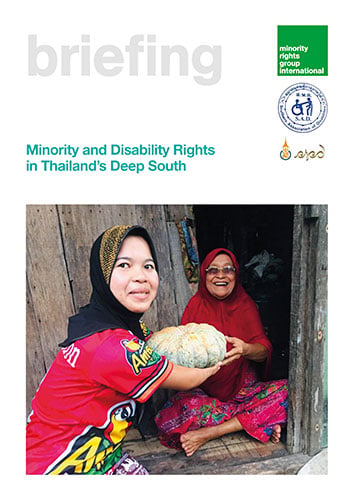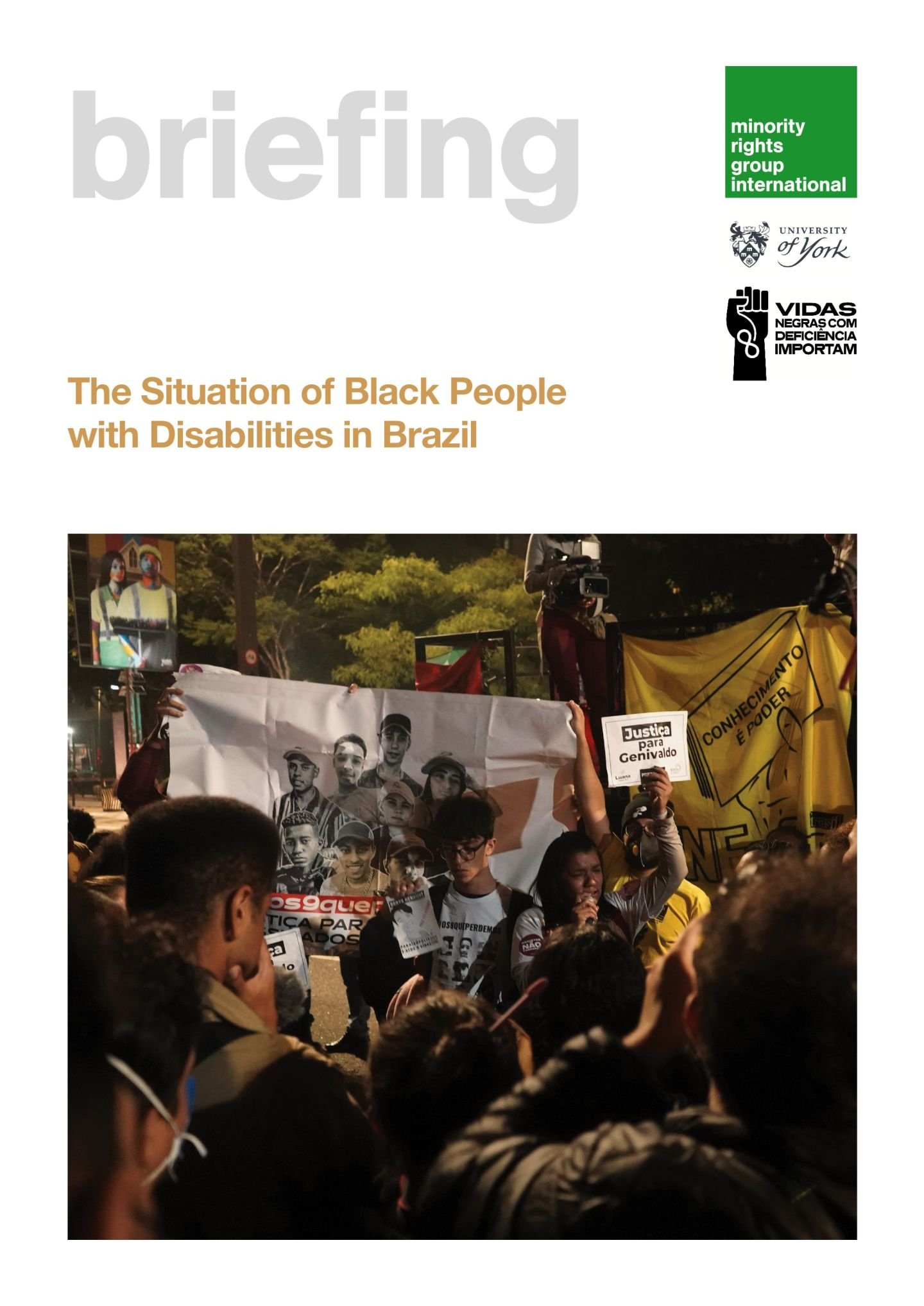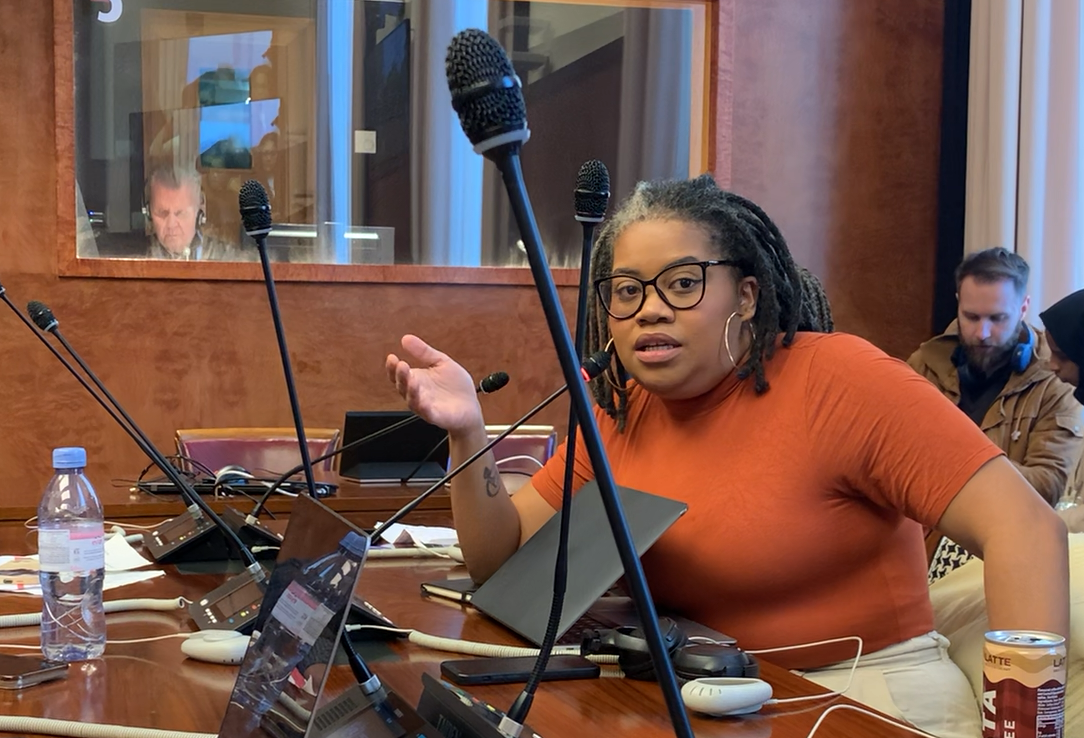
Who can participate in the fight for minority and indigenous rights?
To fight for your rights, you need to enter spaces where your voice can be heard by those in power. You need to be able to access, understand and create information about yourself and your community. To change your situation, you need to know what your rights are. But the world of human rights and its complex ecosystem of reports, statements, forums, summits, laws and declarations is not a landscape that is equally accessible to all.
Who gets to access this information and these spaces, and who is shut out?
Minorities, indigenous peoples and people with disabilities are some of the most marginalized communities in the world. They face exclusion on several and multiplicative fronts, including from the very human rights mechanisms and processes that offer some of the few available avenues to challenge that marginalization.
For example, two key UN declarations – on the rights of indigenous peoples and minorities – enshrine the rights of communities to their languages, yet these documents are not made freely available in those languages. For minority or indigenous persons with intellectual disabilities, this exclusion is even greater, as UN documents and NGO communications are often delivered in highly technical language, replete with jargon and dense with information.
Lobbying for change necessitates evidence and facts. There is often a dire scarcity of good quality information about the situations of minorities and indigenous peoples. For those with disabilities, the impact of this is magnified. It’s essential that this information is produced in accessible formats, to ensure that marginalized communities are not left even further behind.
Though people with disabilities have a right to access information and ideas ‘on an equal basis with others’, globally, provision of accessible information is scarce. In countries where it is provided, this usually pertains to daily essentials – medical, financial or legal information. Within human rights mechanisms, however, it is even more of a rarity.
These mechanisms are often highly inaccessible to people with disabilities. It could be due to a policy debate in language inaccessible for you to understand, a discussion in a venue you can’t get into, information about your community disseminated in a format your assistive technologies can’t work with. Whatever the barrier, if you can’t be informed about your rights and inform others about your experiences, you’re left overlooked or spoken over. Too often your issues remain off the agenda altogether.
Easy read is one tool in ensuring the inclusion and agency of people with learning disabilities. It’s a way to present complex information to people who find reading hard, including people with intellectual and learning disabilities or non-native speakers. Easy read materials comprise of writing in short, simple sentences, free of any hard words or jargon, accompanied by illustrations and reviewed by learning-disabled people.
At MRG, we have begun making our reports available in easy read, ensuring that more minority and indigenous persons with disabilities can understand and use this information in the fight for their rights. So far, we’ve produced Minority and Disability Rights in Thailand’s Deep South and The Situation of Black People with Disabilities in Brazil in summarized easy read formats. We are now working towards mainstreaming this format because, while making disability-related content accessible is an obvious and essential first step, we know we can’t stop there.

But there is no ‘one-size-fits-all’ measure for accessible information. There are many formats to consider, like subtitled video content or audio description. Moreso, it’s not just information that we need to make accessible to all, but the spaces, physical and virtual, where NGOs, CSOs and activists collaborate and strategize, and where those with power make the decisions that affect lives.
The UN Forum on Minority Issues offers simultaneous translation in the six UN languages – six tongues used by millions worldwide. But what about the world’s 70 million deaf people who rely on sign language to communicate? If adjustments aren’t made to ensure everyone can participate on equal terms, are we really being serious about seeking meaningful participation?
Just as with minority or indigenous language-speakers, the ability of deaf people to advocate for their rights is limited by their ability to understand and be understood in the majority language. That’s why, with the World Federation of the Deaf, MRG lobbied the United Nations Forum on Minority Issues to offer international sign language interpretation, first made available in 2019.
Sign languages are minority languages, as the natural languages of deaf people and deeply tied to their distinct cultures. The limited recognition of this fact points towards the need for greater collaboration between the disability and minority rights movements more broadly. Minority and disability organizations must listen to, learn from and fund grassroots organizations working intersectionally, as our partners do.

Accessibility is a human rights obligation. At MRG we have made a humble start in this area, but there is so much more to do. International NGOs and grassroots CSOs alike must make their work as accessible as possible, but they need resources to do this. Funders must make these available. Though there’s a lot that needs to change, activists with disabilities and organizations have already laid out the roadmap – we just need to galvanize the will to follow it. A resounding call of the international disability movement is ‘nothing about us without us’. Let’s make that a reality.
 MRG Disability Programme partners Southern Association of Disabilities distributing ‘Minority and Disability Rights in Thailand’s Deep South’ at a conference, to highlight the situation of work access for minorities with disabilities in Thailand’s Southern Border Provinces. Credit: Lauren Avery/MRG.
MRG Disability Programme partners Southern Association of Disabilities distributing ‘Minority and Disability Rights in Thailand’s Deep South’ at a conference, to highlight the situation of work access for minorities with disabilities in Thailand’s Southern Border Provinces. Credit: Lauren Avery/MRG.



